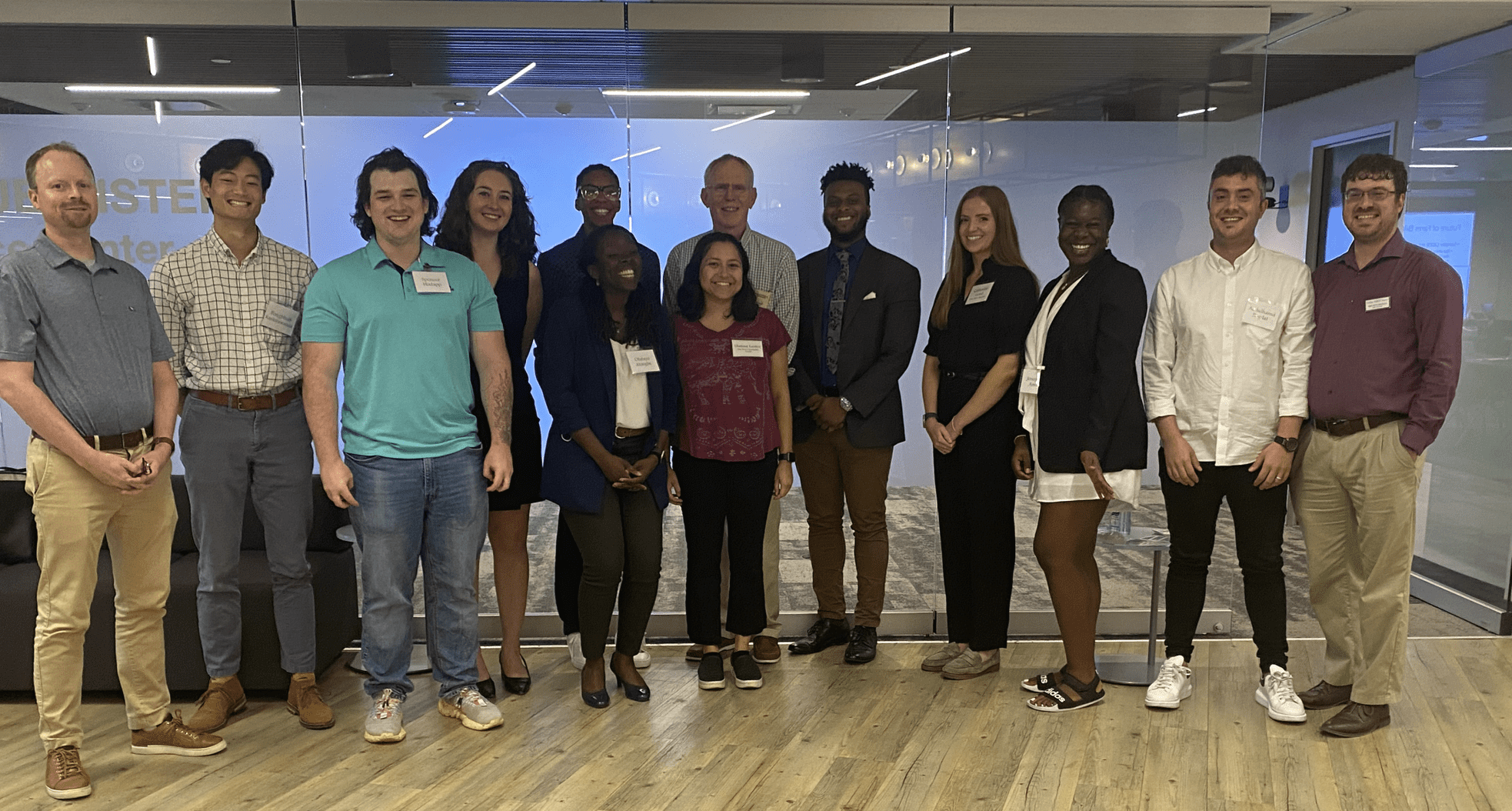Duke in DC hosts the Climate and Sustainability Summer Institute Professionals interested in climate and sustainability policy recently did a Duke-led deep dive into issues…
Duke in DC hosts the Climate and Sustainability Summer Institute
Professionals interested in climate and sustainability policy recently did a Duke-led deep dive into issues such as the science behind climate change, humans’ impacts on climate and climate solutions across industries.
These topics were part of a new two-week course at Duke in DC on climate change – the Climate & Sustainability Summer Institute – taught by Duke faculty and researchers. The course is an example of how Duke is working to build partnerships in the wider community to improve understanding of and identify solutions for major challenges in society.
“Climate change is a wickedly complex problem,” said Brian Murray, interim director of Duke’s Nicholas Institute for Energy, Environment & Sustainability and one of the course designers and instructors. “It’s not just about science and engineering. It’s a societal problem, an economic challenge and a political dilemma. With a course like this, two things happen: you’ll gain an understanding of all dimensions of the problem, and you’ll be better equipped to develop solutions.”
The new course aligns with Duke’s Climate Commitment – not only building capacity within the university to address climate change but also inspiring and educating professionals in diverse industries to advance climate solutions.
“The Climate Commitment builds on a long tradition of leadership,” noted Toddi Steelman, Duke University’s vice president and vice provost for climate and sustainability, speaking at a rooftop reception marking the completion of the course at the Duke in DC office. “For decades, Duke has been a destination for and shaper of leaders in policy, technology, business, education, science and all fields making a positive impact in the sustainability, environment and climate spheres.
“As we turn to the future, we look forward to training the next generation of climate changemakers.”
Thirteen learners comprised the first cohort of the course; they brought a range of experiences, with the Duke in DC location an ideal site to network and learn from each other.
Murray said that a major goal of the summer institute was to set up the right learning environment. “All the participants were busy people with significant roles in their organizations,” he said. Completing online activities on their own, they met in four two-hour evening sessions.

Hannah Townley, a NASA contractor who works on its earth science data collections, said she took the course because of her interest in sustainability. “I grew up in Florida and I’ve spent a lot of time farmlands and on the coast. I’ve seen the impact of climate change on my own community,” she said. In her role she works on making science data more accessible to communities, including farmers, and was particularly interested in discussing the Farm Bill and the possibilities for sustainable agricultural practices.
The course also proved beneficial for those simply seeking to become more informed citizens. Duke alumnus Jim Fuechsel (’76), who sits on the Nicholas School of Environment Board of Visitors, said that’s why he took the course.
“My background is not environmental, so I’ve been actively pursuing this learning curve,” he said. “The program showed me that there are reasonable things people can do in small ways to support the pathway forward.”
Teaching Faculty
- Session 1: Brian McAdoo, Duke Nicholas School of the Environment
- Session 2: Elizabeth Losos, Duke Nicholas Institute for Energy, Environment & Sustainability
- Session 3: Brian Murray, Duke Science & Society, Nicholas School of the Environment
- Session 4: Nico Hotz, Pratt School of Engineering; Norbert Wilson, Sanford School of Public Policy/Duke Divinity School
Credits
Melissa Kaye, Senior Writer, Duke Communications
Bryan Reklis, Senior Producer, Duke Communications

